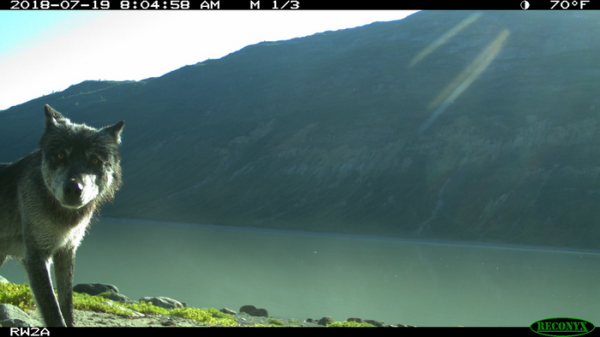People often visit U.S. national parks to catch a glimpse of wildlife. But how does our presence impact the animals we hope to see?
National park traffic has grown steadily over the past decade, and popular parks like Yosemite and Yellowstone can easily see over a million visitors a year. In these heavily used areas, one might expect animals to change their behavior to avoid humans.
But a new University of Washington-led study has found that even in remote, rarely visited national parks, the presence of even just a few humans impacts the activity of wildlife that live there. Nearly any level of human activity in a protected area like a national park can alter the behavior of animals there, the study found. The research was published Oct. 13 in the journal People and Nature.
Read More: University of Washington
A wolf seen on a motion-activated camera in Glacier Bay National Park, Alaska. (Photo credit: Mira Sytsma)


